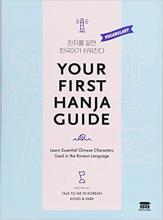Popular Red Velvet Songs for 노래방
List of Korean Movies in the Cannes Film Festival
The Cannes Film Festival (Festival de Cannes) is one of the most prominent film festivals in the world, with its top award (Palme d'Or) being considered as many as the holy grail of cinema. South Korean cinema has increasingly produced many cinematographic gems that have been competing for the Palme d'Or over the last two decades, with 기생충 (Parasite) by 봉준호 (Bong Joon-ho) ultimately being the first Korean movie winning the Palme d'Or of the 2019 Cannes Film Festival. Despite the growing popularity of South Korean movies, it is still challenging to find comprehensive lists about recent Korean movies that have been entered in prestigious film festivals.
Tricky Pronunciations of the Consonant ㄹ (Rieul)
In Korean, the pronunciation of ㄹ and consonants preceding or following it, such as ㄱ (기억, giyeok), ㅂ (비읍, bieup) or ㅁ, differs from the 한글 reading. Because of rules of assimilation of ㄹ to ㄴ after nasal consonants, the pronunciation of ㄱ, ㄹ, and ㅂ needs to be accounted for these changes. This post lists some of these uncommon pronunciation transformations; comprehensive pronunciation rules can be found in Korean: A Comprehensive Grammar by Jaehoon Yeon and Lucien Brown (Routledge Edition).
Pattern V/Adj-은/는 척하다: To Pretend To V/A
Verb/Adjective (V/A)-은/는 척하다 is commonly used in spoken and written Korean to express "to pretend to (V/Adj)." It can also be translated at "to make it look like (V/Adj)" in more complex sentences (see examples below).
The pattern is written differently depending on whether the word in front of the pattern is a verb or an adjective:
- For verbs, present tense: V-는 척하다 regardless of the 받침 of the verb, using common conjugation rules. E.g., 모르다 → 모르는 척하다, 놀다 → 노는 척하다, 읽다 → 읽는 척하다, 넣다→ 넣는 척하다.
- For verbs, past tense: V-ㄴ/은 척하다. E.g., 모르다 → 모른 척하다, 놀다 → 논 척하다, 읽다 → 읽은 척하다, 넣다 → 넣은 척하다. See Note 3 for a usage note.
- For adjectives: A-ㄴ/은 척하다. E.g., 똑똑하다 → 똑똑한 척하다, 이쁘다 → 이쁜 척하다.
Examples
Verbs
Adjectives
Example Dialogue
빅터: 준형아, 잘 생긴 척하지마! 너 정말 못생겼어!
Book Review - Your First Hanja Guide

Your First Hanja Guide is a 한자 (hanjja, or Chinese characters used in the Korean language) reference book co-written by the staff at Talk to Me in Korean (TTMIK). This book is one of their few books aimed both at their intermediate and advanced learners of Korean and is meant to be an introduction to common Korean words of Chinese origin used in everyday language.
Popular BLACKPINK Songs for Norebang
BLACKPINK (블랙핑크) songs in the table below are ordered from most to least recent. Recent songs may be unavailable at your local 노래방 if the machines have not been updated. To determine the column to use for your karaoke session, look at the manufacturer of the karaoke machine either on the machine itself, on the remote, or on the interface. You should see two letters, either TJ or KY; use the corresponding column in the table below to add the song to the queue and start singing! See more detailed instructions on Korean norebang machines.
Most Common Korean Words Pronounced Wrong Part. 3
This is Part. 3 of the series Most Common Korean Words Pronounced Wrong (read Part. 1 (words 1-1000) and Part. 2 (words 1001-1500).
Pronouncing Korean can be difficult given the many exceptions to basic pronunciation rules. In many cases, words seemingly simple have a different pronunciation from their 한글 spelling. Below are listed the most common words that have a different pronunciation from their spelling. These common words were selected among words 1501-2000 from the book A Frequency Dictionary of Korean. This list will be updated with relevant pronunciation guides on KoniKorean when available.
Popular Seventeen Songs for 노래방 (Norebang - Korean Karaoke)
Most Common Korean Words Pronounced Wrong Part. 2
This is Part. 2 of the series Most Common Korean Words Pronounced Wrong. Read Part. 1 (words 1-1000) and Part. 3 (words 1501-2000).
Pronouncing Korean can be difficult given the many exceptions to basic pronunciation rules. In many cases, words seemingly simple have a different pronunciation from their 한글 spelling. Below are listed the most common words that have a different pronunciation from their spelling. These common words were selected among words 1001-1500 from the book A Frequency Dictionary of Korean. This list will be updated with relevant pronunciation guides on KoniKorean when available.
Most Common Korean Words Pronounced Wrong Part. 1
Pronouncing Korean can be difficult given the many exceptions to basic pronunciation rules. In many cases, words seemingly simple have a different pronunciation from their 한글 spelling. Below are listed the most common words that have a different pronunciation from their spelling. These common words were selected among the first 1000 words from the book A Frequency Dictionary of Korean. This list will be updated with relevant pronunciation guides on KoniKorean when available.

